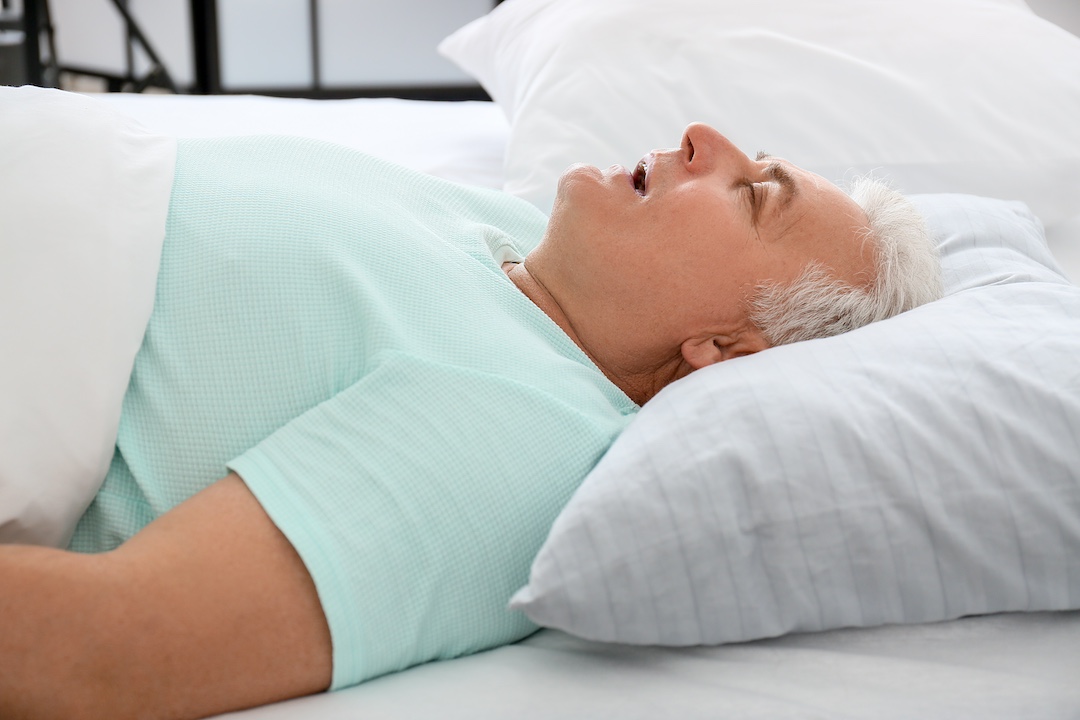Is Snoring a Sign of Something Serious?
We’ve all heard it (or maybe been guilty of it)—that deep, rumbling snore that shakes the walls. While snoring is common, it can sometimes be a red flag for a more serious condition: obstructive sleep apnea (OSA). But how do you know if your (or your partner’s) snoring is harmless or a cause for concern?
What Causes Snoring?
Snoring happens when airflow through the mouth or nose is partially blocked during sleep. This causes the tissues in your throat to vibrate, leading to that all-too-familiar rumble and shake. Some common causes include:
- Nasal congestion (allergies, colds, sinus issues)
- Sleep position (back sleeping can cause airway collapse)
- Alcohol consumption (relaxes throat muscles)
- Excess weight (extra tissue around the throat can narrow the airway)
- Anatomy (deviated septum, enlarged tonsils, or a long soft palate
“Occasional snoring due to congestion or sleep position is usually harmless. But when does it become a problem?”
Is It Sleep Apnea?
Snoring alone doesn’t always indicate sleep apnea, but if you or a loved one experience these additional symptoms, it’s time to take a closer look:
- Loud, persistent snoring (especially if it’s accompanied by gasping or choking sounds)
- Pauses in breathing during sleep (often noticed by a partner)
- Excessive daytime fatigue (even after a full night’s sleep)
- Waking up with a dry mouth or sore throat
- Frequent nighttime awakenings or insomnia
- Morning headaches
- Difficulty concentrating, memory problems, or irritability
If any of these sound familiar, sleep apnea could be affecting your health.
What About Women?
Women often experience OSA differently. Instead of intense snoring, they may have symptoms like insomnia, morning headaches, chronic fatigue, or mood changes. Because of this, OSA in women is often overlooked. If you experience persistent tiredness even after a full night’s sleep, you might consider a sleep study.
What Happens if Sleep Apnea Goes Untreated?
OSA is more than just a sleep disruptor—it’s linked to increased risk of serious health issues, including:
- High blood pressure and heart disease
- Increased risk of stroke
- Type 2 diabetes
- Depression and mood disorders
- Daytime drowsiness leading to accidents
Ignoring sleep apnea isn’t just about losing sleep—it can shorten your health span. Wondering what that means? Health span is the part of your life spent in good health, not just the number of years you live. Prioritizing sleep apnea treatment helps protect both. Want to learn more about the dangers of uncontrolled sleep apnea? Johns Hopkins Medicine.
How to Find Out if You Have Sleep Apnea
The only way to know for sure? A sleep study. An at-home sleep study monitors your breathing, oxygen levels, and sleep patterns to diagnose OSA.
Treatment Options: What’s Next?
If you’re diagnosed with sleep apnea, don’t worry—effective treatments exist! Options include:
- CPAP therapy (the gold standard for treating OSA)
- Oral appliances (in mild cases, to reposition the jaw and keep the airway open)
- Lifestyle adjustments (such as avoiding alcohol before bed or maintaining a healthy weight to help reduce symptoms)
Take Action for Better Sleep
If you or your partner experience loud snoring plus any of the symptoms above, it’s time to get checked. Don’t let sleep apnea go unchecked—your health depends on it!
Book a sleep consultation today and take the first step toward restful nights!






